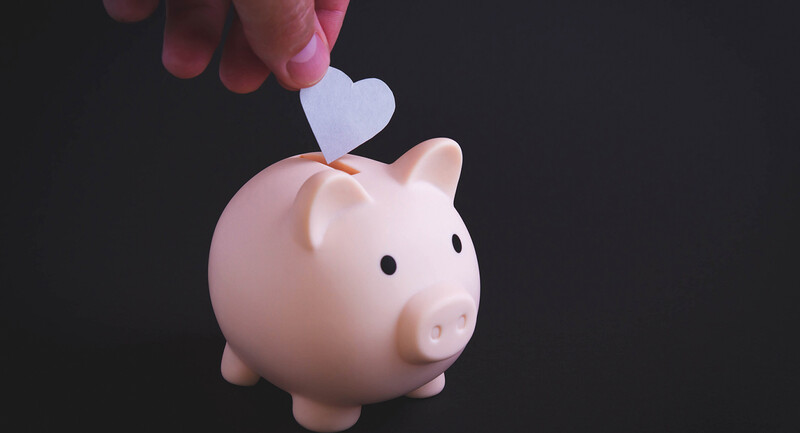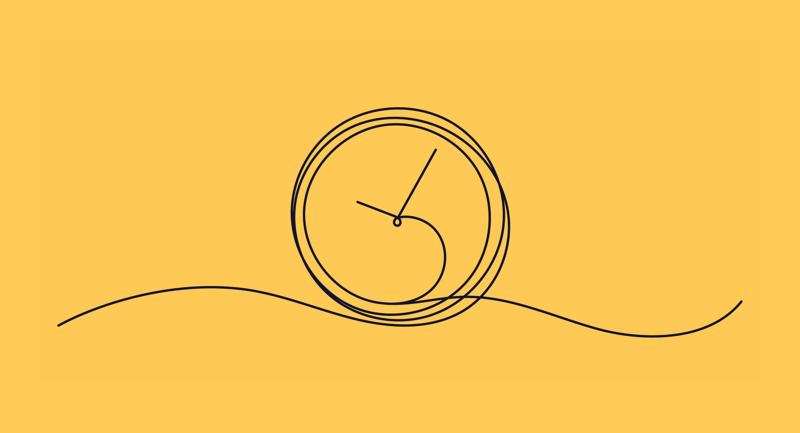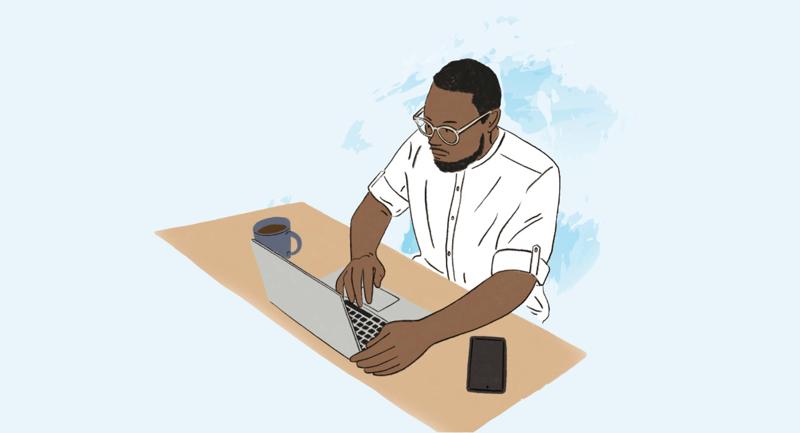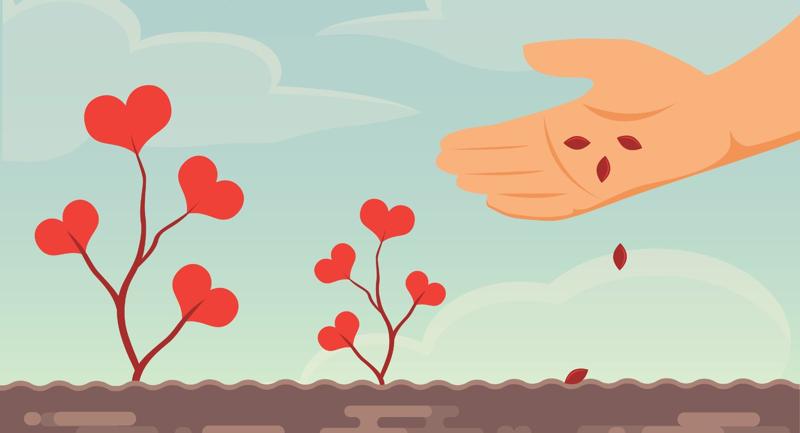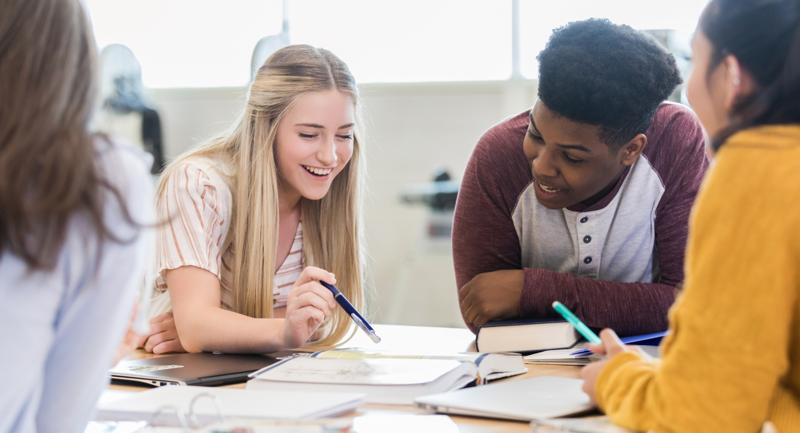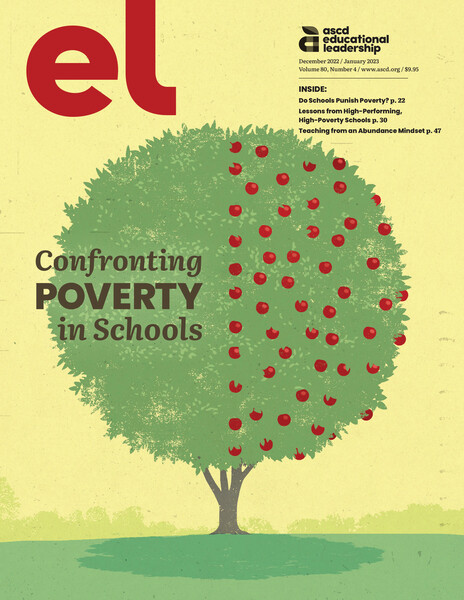The final assignment for the students in my positive psychology class took an entire day to complete. The assignment, though, had just one objective: Make strangers smile.
For a couple days leading up to the final each year, my high school students brainstormed all the ways they could make strangers smile. They came up with some wild ideas—a handful of which were actually legal. They concocted ways to bring giant vats of hot chocolate on a bus and hand cups out on the snowy sidewalks. They convinced a local florist to donate flowers for them to give to random people. They raised money to buy socks and toiletries to give to those less fortunate on the streets.
Among the many good deeds my students have done on these trips to downtown Kalamazoo, Michigan, one stood out for its impact: A group of students handed out positive notes to strangers. Index cards with affirmations—handwriting imperfect, grammar and spelling all janky. These teens were on a mission that day to find the most miserable person they could. Seriously. Overachievers on the assignment, they were scanning the downtown Kalamazoo library for the least happy person. That guy? Nah, too smiley. Her? Nope, seems OK. Then they spotted her. A woman who looked miserable—raw and reddened eyes, disheveled clothes, her face frozen in a scowl.
They flipped through all their notes to find the perfect one to give her. They awkwardly walked up, slid the index card to the woman, scampered away, and watched from a distance. To their horror, the woman started bawling in the library. They panicked, thinking they offended her, and rushed up to apologize. As they started to say sorry, she threw her arms out for a hug.
She cried into the shoulders of my students, total strangers to her.
Turns out, she had suffered a miscarriage one month prior. Every day since, she questioned her desire to live. Why should she keep going? Why would life punish her like this? What was the point?
But then she told my students that this note—to her—was a sign from God to not give up. The note said four words:
It
will
get
better.
Four words on an index card may have saved this human being's life. It was an act so simple, yet so powerful.
After this happened, I found myself wondering: Why don't we create these moments more often? Why don't we engage our students or our colleagues or strangers on the street with these simple kind acts? Ironically, I realized, one of our key strengths as educators stops us from trying: Empathy.
Impaired or Empowered?
The size of the need for change can feel insurmountable. Whether we are battling against childhood poverty, racism, climate change, or our own burnout, we often become overwhelmed with the immensity of the task. There's too much wrong, too many people to help, too much suffering to stop. I alone can't fix it all.
Most educators I know are highly empathic. But empathy isn't something you either have or don't; empathy exists on a continuum. On one end, we have empathy gaps: a deficiency in understanding or relating to a person's experiences or emotions. On the other end, we have empathy traps: feeling another's emotions so deeply that we are too impaired to act.
Too low empathy = Indifferent
Too high empathy = Impaired
Moderate = Empowered
If we feel empathy too deeply, we can become powerless to act (Levy, Howard, & Aronczyk, 2018). In these moments—when we feel impaired by the magnitude of making the world a better place—we need to downsize our ambitions. Like my students with their index cards, we need to focus on making one moment a better moment.
We need to focus on making one moment a better moment.
How Interest Adds Up
Consider retirement investments. Rather than investing massive sums of money at once, it's smarter (and easier) to invest small amounts early on. This small habit of effort, coupled with compounding interest, creates growth. Our efforts of kindness and activism should be the same.
When we start with small actions of influence, we do several things:
We cue an internal locus of control—focusing on our own agency to create change—which increases our resilience and reduces burnout.
Our efforts become contagious, causing a ripple effect that doesn't just impact our immediate network, but multiple networks (Christakis & Fowler, 2011). We create more expansive waves of positive change.
We also create recurring splashes of kindness: our increased altruism makes it more likely that both the giver and the receiver do future altruistic acts (Layous et al., 2016).
A small moment of altruism or activism is an investment that yields compounding interest. Identify the change you want to see in the world—such as less racism, greater care for the environment, reduced poverty. Then, narrow your focus: How does this problem show up in your school or community? Is there a specific person you know who is experiencing it? Is it a moment that happens in your classroom or community, such as an incident of racial prejudice; food waste in the cafeteria; or a resource like clothing, food, or supplies that some students don't have access to?
With a specific image in mind of the challenge, brainstorm small actions of influence. What is one step you could take today or this week to make a positive impact?
Does your burned-out colleague need a note affirming how great they are doing at their job?
Do your students need someone who will address homophobic or racist language in the hallway between classes?
Does your school need a place for students to get clothing or food donations anonymously?
Frame these as starting points, not ending points. We know we aren't changing the world with these actions—we are changing moments. And every massive change starts with moments compounded over time.
How Influence Adds Up
Returning from one of our positive psychology field trips, I was reminded of the importance of small actions. One of my students came up to me, tears streaming down her cheeks. And then she told me this:
"Mr. Mielke, never in my life have I felt like I mattered, like I had influence in this world … until today."
I hear her words in my head every time I feel overwhelmed by the challenges of this world. Every time I feel fatigued. Every time I think, I can't fix this. I hope you hear her too. The work you do matters. The actions you take, no matter how small, have influence. Compound your influence, and I promise: It will get better.

